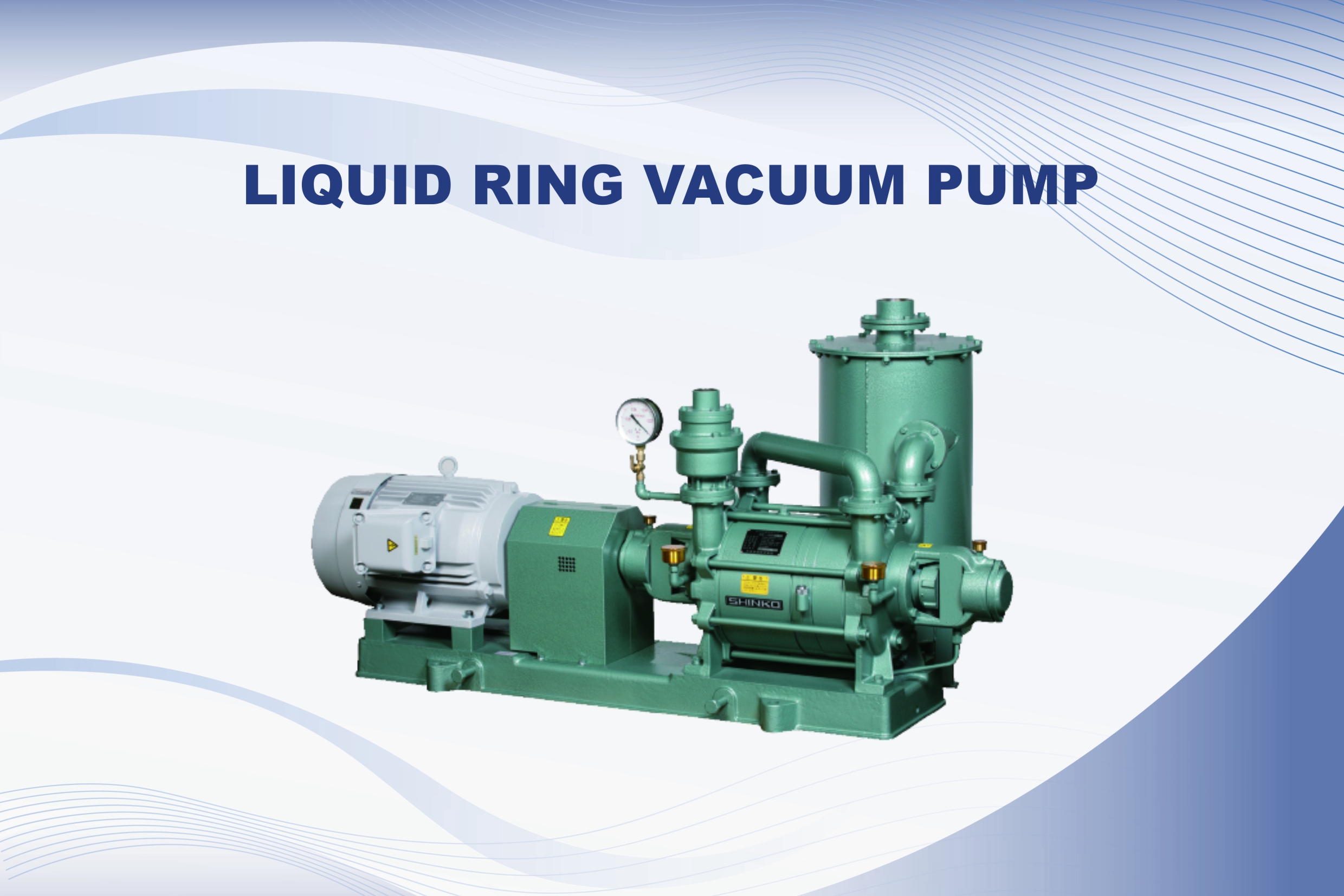
Whether it is to maintain the integrity of pharmaceutical formulations or to ensure operational efficiency in chemical plants and power stations, a dependable vacuum pump plays a critical role in numerous processes. However, since industrial environments are rarely perfect, factors such as moisture, dust, corrosive gases, and sudden load variations are inevitable. In such challenging conditions, Liquid Ring Vacuum Pumps (LRVPs) provide a reliable solution. It has a unique ability to thrive in messy, moisture-rich, and harsh conditions. It is known for their rugged design and consistent performance, these vacuum pumps offer a perfect balance of simplicity, reliability, and versatility—qualities that make them a cornerstone of modern vacuum technology.
The fundamental of motorized transfer of fluid is used in a LRVPs. It is a type of rotary pump. Water is used as a sealing liquid to create the vacuum effect. Oil can also be used instead of water as and when required. As the impeller spins, the liquid forms a ring inside the casing, trapping gas between the impeller blades. The trapped gas is squeezed and pushed out, which results in a vacuum. It performs well in fluctuating process conditions and handle dampness and other pollutants, hence LRVPs are a preferred choice across diverse industries.
In Chemical and Pharmaceutical processes, liquid ring vacuum pumps are used in distillation, drying, solvent recovery, and crystallization. It is resistant to corrosive gases and vapours especially when constructed from corrosion-resistant materials.
In food production industry, vacuum is the key factor that helps in packaging, deaeration, and evaporation. Liquid ring vacuum pumps can manage wet processes without contaminating the product. It maintains the safety and quality of the produce.
Steam power plants use LRVPs for condenser air extraction. It has the ability to tolerate water vapor and maintain stable operation under fluctuating load conditions and ensures uninterrupted plant performance.
During pulp dewatering, the system must handle high-moisture gas streams. Liquid ring vacuum pumps are best for pulp dewatering as it offers reliable performance in moisture-laden environments.
From gas extraction in mines to groundwater remediation and vapor recovery, LRVPs are used for their rugged build and ability to handle contaminated or dirty gases without failure.
The design is simple but it is durable with minimal tolerance requirements, LRVPs resist damage from particle filled gases and deliver long-lasting performance.
Unlike many vacuum pump technologies, LRVPs are not affected by wet, saturated, or condensing vapours and this makes them indispensable in processes which involves water and solvents.
It has only few moving parts and are easy to service it and maintain. It reduces downtime and offers extended service intervals, thus minimizes operating costs.
The sealing liquid used can absorb heat and dilute hazardous gases. This enables safe operation in ATEX-rated environments, where flammable or volatile conditions exist.
LRVPs can deliver consistent performance even when exposed to dust, extreme temperatures, or fluctuating process conditions. Other machines require extensive pre-filtration or may even fail to perform but LRVPs get the work done accurately.
Liquid Ring Vacuum Pumps (LRVPs) navigates corrosive vapours in chemical and pharmaceutical plants to preserving the freshness of packaged food and sustaining power plant operations with unmatched resilience and consistency. Today, their relevance grows stronger as technology and market demands evolve.
Tekman India highlights why LRVPs remain relevant in today’s industrial matrix. Tekman delivers customized solutions across industries and their vacuum pump designs conserves energy and are cost efficient. Connect with us for more details.